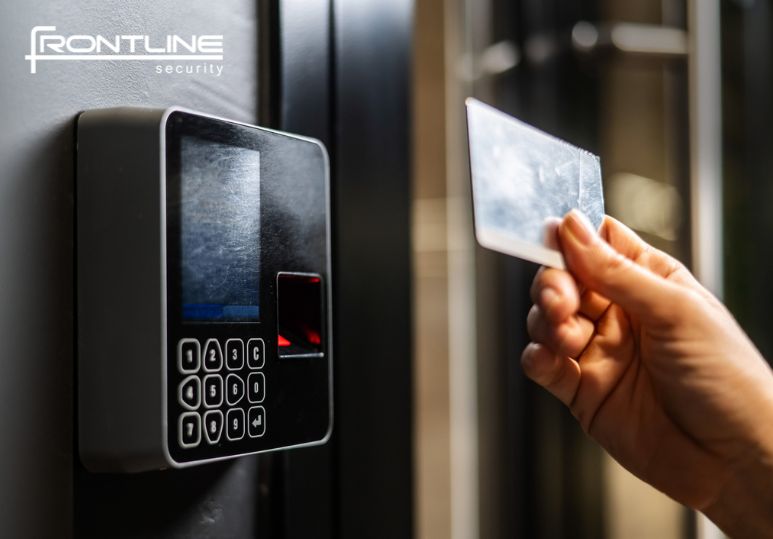The Role of Security Access Control in Modern Businesses

Security access control is a vital tool in modern businesses, providing enhanced security by restricting access to physical and logical assets. It plays a key role in protecting sensitive information and valuable assets from unauthorized access, thereby reducing the risk of data breaches. Access control systems also help businesses meet industry-specific regulations related to data protection, enhancing their compliance standing. By automating access control, operational efficiency is increased, saving time and improving productivity. Furthermore, these systems keep detailed records of access, providing essential data for security audits and investigations. In summary, security access control systems offer multifaceted benefits to businesses, including enhanced security, improved compliance, increased operational efficiency, reduced risk of data breaches, and provision of detailed access records.
In today's digital age, businesses are increasingly reliant on technology not only for their operations but also for safeguarding their assets. As the world becomes more interconnected and business operations expand beyond traditional boundaries, the need for robust security measures has never been greater. One such measure that has become a cornerstone of modern business operations is security access control.
Security access control is a fundamental concept in security that minimizes risk to the business or organization. It achieves this by restricting access to certain resources. These resources could be physical locations like buildings, rooms, and various physical assets. They could also be logical assets like computer networks, system files, data, and software applications.
There are two types of access control: physical and logical. Physical access control restricts access to buildings, rooms, and physical assets. Logical access control, on the other hand, limits connections to computer networks, system files, and data. Both play a crucial role in securing an organization's valuable assets.
Enhanced Security
The primary benefit of implementing an access control system is the enhanced level of security it provides. By limiting who can access certain resources, access control systems protect sensitive information and valuable assets from unauthorized access. This can be particularly important for businesses operating in sectors where the protection of proprietary information is paramount.
Improved Compliance
Many industries have regulations requiring businesses to control who has access to certain information. For example, healthcare organizations must comply with HIPAA regulations, which require them to protect patient health information. Financial institutions, too, must adhere to numerous regulations intended to safeguard consumer financial data. An access control system can help businesses meet these compliance requirements, reducing the risk of regulatory penalties and enhancing their reputation among clients and customers.
Increased Operational Efficiency
Access control systems can significantly increase operational efficiency. By automating access control, businesses can streamline their operations, saving time and improving productivity. Employees no longer need to fumble with keys or remember complex codes; instead, they can use a key card or even biometric data to gain access to the resources they need. This simplicity and ease of use can lead to a smoother, more efficient operation.
Reduced Risk of Data Breaches
Data breaches pose a significant risk to modern businesses. They can result in substantial financial losses, damage to a company's reputation, and loss of customer trust. Access control systems can significantly reduce the risk of data breaches by limiting who can access sensitive data. By ensuring that only authorized individuals have access to this information, businesses can better protect themselves from the costly fallout of a data breach.
Detailed Access Records
Access control systems keep detailed records of who accessed what resources and when. This can provide valuable insights for security audits and investigations. If a security incident occurs, these records can help identify who was in a certain location at the time of the incident or who had access to specific data.
In conclusion, the role of security access control in modern businesses cannot be overstated. From enhancing security and improving compliance to increasing operational efficiency and reducing the risk of data breaches, access control systems are an essential tool in a company's security arsenal. Moreover, the detailed access records these systems provide can be invaluable in the event of a security incident, helping to quickly identify potential issues and resolve them effectively.
Get the Peace of Mind You Deserve
You’ve worked hard to build your business or buy your home. Now it’s time to protect them properly and give yourself the peace of mind you deserve. Our full-service security solutions can give whatever matters most to you the 360° protection it needs. Contact us today by calling (403) 291-9311 or by filling out the form below and put us on your frontline.
